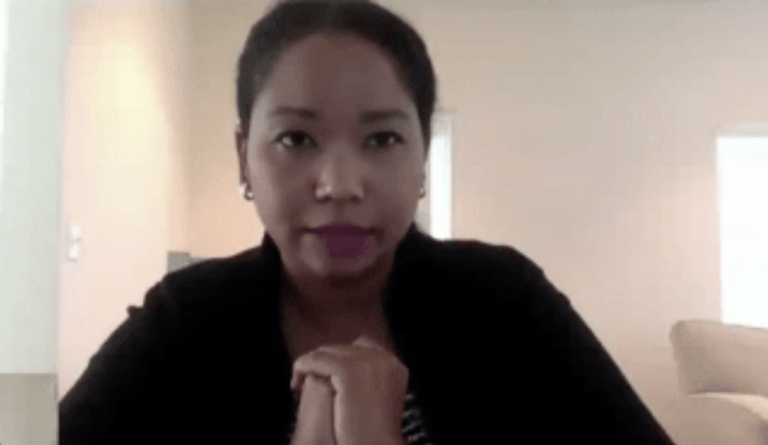US FDA approves emergency use authorization of Pfizer-BioNTech vaccine
NASSAU, BAHAMAS — The United States’ approval of the Pfizer-BioNTech COVID-19 vaccine is a “tremendous step forward” toward immunity of the virus, said Director of the Infectious Disease Programme Dr Nikkiah Forbes.
On Friday, the US Food and Drug Administration (FDA) approved emergency use authorization for the first COVID-19 vaccine, allowing Pfizer-BioNTech to be distributed across the country.
In an interview with Eyewitness News, Forbes said: “With the distribution of the vaccine and with people getting vaccinations in the coming days, weeks and months, that is a step forward to having COVID immunity.
“It will take time for full vaccine coverage but it’s definitely a step in the right direction and tremendous progress in the fight against COVID-19.”
Forbes noted that while other countries have already started vaccinations this year, The Bahamas will not likely start its vaccinations until sometime next year.
“It’s highly dependent on when we get the vaccine in the country,” she said.
“Based on the discussions that have taken place, I know the minister of health and the government of The Bahamas is in partnership with investees but it is looking like it will be later on in 2021 for many countries”.
The United States joined Britain, Bahrain, Canada, Saudi Arabia and Mexico in approving the vaccine in recent weeks.
On Tuesday, the United Kingdom became the first nation to start vaccinating its citizens with a fully vetted and authorized COVID-19 shot.
According to reports, at least two people in the United Kingdom have had allergic reactions shortly after receiving the vaccine.
Healthcare professionals advised that those individuals have a history of serious allergies and carry adrenaline pens around with them.
Regulators are now advising that people with a history of significant allergic reactions should not take the Pfizer/BioNTech vaccine.
Asked yesterday whether there will be an independent review of the vaccine in The Bahamas, Forbes indicated that that mechanism is usually done through the World Health Organization (WHO) procurement process.
“That would be what is expected in the case of the COVID-19 vaccine and that is what we heard will happen,” she said.
She noted that the FDA’s approval of the vaccine is “noteworthy” and ensures the relevant safety mechanisms have been applied and there has already been an independent review of the safety information with recommendations from an expert panel.
“I’m certain that when vaccines are administered to the broader public, there is ongoing information and the opportunity for feedback information, such as adverse [effects] and other reports to the developers,” Forbes added.
Access to vaccines
An initial shipment of about three million doses of the vaccine is expected to be distributed throughout the US over the upcoming days. Pfizer has a deal with the US government to supply 100 million doses of the vaccine by next March.
International vaccine watchdog the People’s Vaccine Alliance has warned that rich countries are hoarding COVID-19 vaccines and will likely leave developing countries behind in the fight to end the coronavirus pandemic.
The organization has urged pharmaceutical companies to share their intellectual property with the WHO free from patents, and called on governments to prevent monopolies and implement fair allocation worldwide in order to close the economic disparity between nations.
The People’s Vaccine Alliance is a coalition of organizations including Free the Vaccine, the Yunus Centre, Frontline AIDS, Oxfam, SumOfUs and UNAIDS.
Forbes noted yesterday that vaccine accessibility is an important issue ethically, in ensuring that all countries, including developing countries, get a fair chance.
“There are very real challenges as it relates to affording the vaccine, procuring the vaccine and getting the vaccine,” she said.
“It is a global platform and it’s important that this vaccine is accessible to all.”
Minister of Health Renward Wells has advised that the government has budgeted nearly $4.5 million for the procurement and distribution of the COVID-19 vaccine throughout the country, once one is chosen by the WHO.
A down payment of $250,000 has already been paid for 80,000 doses of whatever vaccine is chosen by the WHO — accounting for up to 20 percent of the country’s population.
The Bahamas is a part of the COVAX Facility convened by Gavi, CEPI and the WHO, which will afford countries in the region the best opportunity to fast-track access to COVID-19 vaccines.
The COVAX Facility offers access to a basket of 15 possible vaccines.
Additionally, Prime Minister Dr Hubert Minnis is leading direct negotiations with several international pharmaceutical companies, including Pfizer, Moderna and AstraZeneca, to procure additional vaccines for the country.


